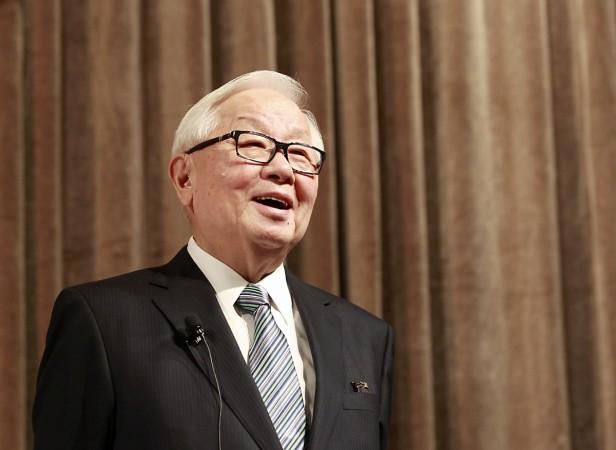
Morris Chang is no ordinary 86-year-old running into easy money – not when he helps Apple make its bestselling product, the iPhone. Expected demand for Apple's next iPhone iteration has now pushed Chang into the billionaire league. The MIT and Stanford University graduate had established the Taiwan Semiconductor Manufacturing Corporation (TSMC) in 1987 when he was in his mid-50s.
The self-effacing Texas Instruments alumnus was true to his low-key style when he quietly went about evolving TSMC into the world's largest contract chipmaker and taking on the manufacture of iPhones for Apple.
As the iPhone evolved into the megastar on Apple's assembly line, and brought in 80 percent of its product sales, Chang's fortunes grew, though he owned a mere 0.5 percent direct shareholding in TSMC.
However, TSMC shares have surged 25 percent over the past year, lifting founder and chairman Morris Chang's personal fortune to $1 billion, according to the Bloomberg Billionaires Index.
The climbing valuation for TSMC shares was fuelled by optimism for a revenue boost from the upcoming iPhone release, as well as long-term expectations that cars, high-performance computing and the Internet of Things would emerge as new growth drivers for TSMC's processor line, Randy Abrams, a Taipei-based equity analyst at Credit Suisse Group AG, told financial daily HT Mint on Friday.
TSMC's market cap has now swelled to $183 billion, making it the most valuable company on Taiwan's stock exchange. Hon Hai Precision Industry, the listed flagship of iPhone assembler Foxconn Technology Group, is the second most valuable company on the exchange, rising 52 per cent in the past year to $66 billion.
Chang remains the largest shareholder of the company he founded with backing from the Taiwan government. His shares in TSMC are vested through the National Development Fund's 6.4 per cent stake.
The technology maven's leadership acumen held TSMC up during troubled times when orders for chip design from marquee customers stagnated during the mid 2000s. Chang had stepped as chief executive officer of the corporation in 2005, but returned on pressure from shareholders and TSMC's board who reposed faith in his leadership.
Yielding to demands for his return, Chang subsequently served a second stint as CEO between 2009 and 2013, putting TSMC back in the news for the right reasons – higher operating profits, a marquee client roster and a green bottomline.
















